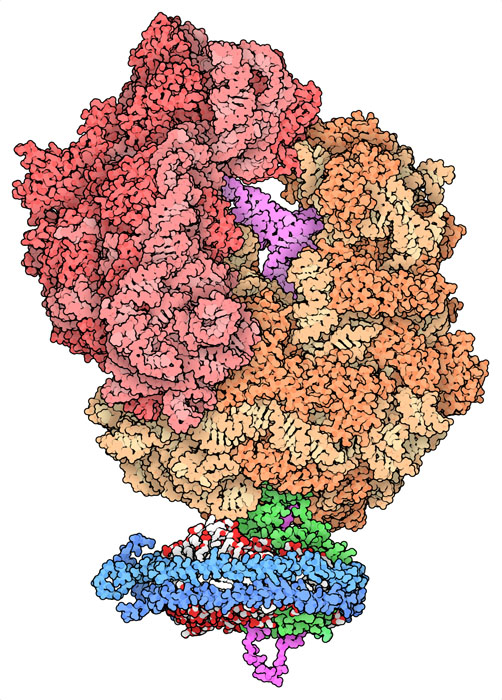
Nov 12, 2019 - Atlanta, GA
Thanks to powerful computer hardware and software, molecular dynamics simulations apply laws of physics on the atomic scale, allowing researchers to study how the movements of atoms and molecules evolve over a set amount of time.
Where can this type of research lead? James "JC" Gumbart, an associate professor in the School of Physics, says molecular dynamics simulations are already showing promise for uncovering clues about antibiotic resistance, a growing medical problem that’s estimated to add $20 billion in annual healthcare costs.
How molecular dynamics is used to approach problems at the atomic level is the subject of ScienceMatters Season 3 Episode 9, "Charting the Paths of Molecules."
Gumbart and his team in his Simulations of Bacterial Systems lab are trying to represent, as realistically as possible, all the atoms involved in complex molecular systems, such as proteins or even proteins in a membrane.
Gumbart says molecular dynamics is essentially using the principles of physics, particularly classical mechanics, and applying them to thousands of atoms simultaneously.
Proteins that may be behind diseases like Alzheimer’s and Parkinson’s are also on Gumbart’s radar.
Each ScienceMatters episode includes a quiz that refers to facts mentioned in each podcast. A winner will be chosen randomly from all who submit correct answers. Winners will receive special College of Sciences gifts.
The Episode 9 quiz question:
What is the term for abnormal protein buildups in the brain?
The winner will be announced in the following week.
Submit your answer by 5 PM on Monday, Nov. 18 at https://forms.cos.gatech.edu/sciencematters-season-3-episode-9-quiz.
ScienceMatters podcasts are available for subscription at Apple Podcasts and Soundcloud.

